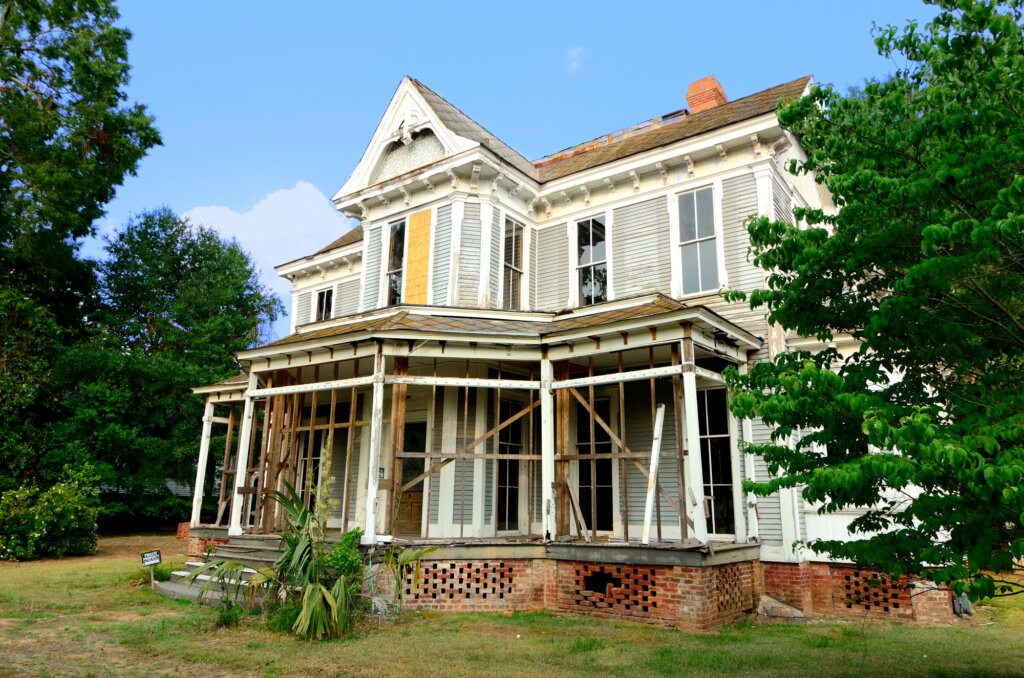
Selling an Inherited Property in Atlanta: A Comprehensive Guide
Inheriting a property can be both emotionally challenging and financially demanding. When selling an inherited property, you might face questions about necessary repairs, tax implications, and the probate process. However, inherited properties also offer great opportunities for real estate investors and buyers. This guide will explain the process of selling an inherited property in Atlanta, aiming to help you achieve a profitable sale.
How To Sell an Inherited Property in Atlanta
If you’ve inherited a property and are unsure of the next steps, you are not alone. Typically, an inherited property must go through probate to establish legal ownership. This legal process transfers the estate’s assets to the beneficiaries or heirs. The duration of probate varies depending on the state of the will and other factors.
- Determine the Executor
For properties with a will, identifying the executor is usually straightforward. The executor is responsible for carrying out the deceased’s wishes and managing the estate through probate. However, if the will is contested or there is no will, the court will appoint an administrator to handle these duties. This process can extend the time needed to settle the estate and sell the property.
- Working with Lawyers and Real Estate Agents
Navigating probate can be complex, so it’s wise to engage an experienced lawyer. Once the probate court approves the sale, partnering with a real estate agent who has experience with inherited properties is essential. An experienced agent can help you understand the market, suggest necessary repairs or upgrades, and find the right buyers to maximize the property’s value.
- Resolve Any Debts
Inheriting a property often means inheriting associated debts, such as liens, back taxes, and mortgages. These must be settled before any proceeds from the sale can be realized. Consulting with an estate advisor can provide guidance on handling these financial obligations effectively.
- Clean and Restore the Home
After resolving ownership and debt issues, you must decide whether to live in, rent out, or sell the property. Inherited homes may need significant cleaning and repairs. Investing in necessary upgrades can increase the property’s market readiness and value.
- Tax Implications
Selling an inherited property may trigger various taxes, including estate, inheritance, and capital gains taxes. It’s crucial to understand the tax laws in your state and consult with a tax professional to minimize liabilities and maximize your profit.
- Streamline the Selling Process
For a hassle-free experience, consider working with We Buy Houses in Atlanta GA, a direct house-buying company specializing in inherited properties. We offer competitive cash offers regardless of the property’s condition, ensuring a straightforward and stress-free selling process.
Do all heirs have to agree to sell the property?
No, the heirs don’t have to unanimously agree to sell an inherited property if ownership has been established by a will or through the probate court. However, if ownership has not been clearly defined, such as with an estate lacking a will or a court-appointed administrator, all heirs must agree to the sale. This situation also applies to properties auctioned by the court to settle the estate’s debts. If an heir disagrees with the sale, the transaction is paused until the dispute is resolved.
How to Settle a Disagreement
Settling disagreements among heirs can be challenging, but there are several effective approaches:
- Appoint an Executor: Ensure a loved one has designated an executor in their will. This person is responsible for executing the deceased’s wishes, reducing the likelihood of disputes over the estate’s assets.
- Mediation: If no executor is named or the will is disputed, hiring a mediator can help resolve conflicts. A neutral third party can facilitate discussions and reach a compromise, which is often more cost-effective than a court battle.
- Best Practices for Executors: If disputes arise around the executor, they can decline the appointment. An independent fiduciary, such as an estate-planning attorney, can be appointed instead. This step can prevent family conflicts and allow members to process their emotions without further strife.
How is Inherited Property Taxed When Sold?
State and local governments in the United States collected over $5.3 billion in revenue from estate and inheritance taxes in 2020. That’s a significant amount of taxes! However, tax laws and regulations vary widely from state to state. Therefore, it is crucial to research and consult a lawyer with expertise in taxes and estate planning to navigate the complexities of selling an inherited property.
- State Tax Laws
Inheritance tax laws differ across states. When selling an inherited property, you may encounter estate taxes, inheritance taxes, and capital gains taxes. Currently, twelve states have an estate tax, five have an inheritance tax, and one state has both.
- Capital Gains Tax on Inherited Property
Capital gains tax is applied to the profit made from selling an asset inherited through an estate. This tax is calculated on the difference between the sale price and the fair market value of the property at the time of inheritance. Most states impose this tax, but there may be exemptions for properties sold below a certain threshold. For instance, in Washington State, the capital gains tax is not levied on properties sold for less than $250,000. Additionally, there might be legal strategies to reduce or defer capital gains tax, such as reinvesting the proceeds in another property. Consulting a tax lawyer familiar with your state’s laws is essential before selling the property.
- Estate Taxes
Estate taxes are paid out of the estate before distribution to heirs. These taxes apply to estates that exceed a certain value threshold. In 2023, the federal estate tax exemption was $12.92 million per individual, meaning estates valued below this amount are not subject to federal estate taxes. Despite the high threshold, many states have their own estate tax laws, though some are gradually repealing these laws.
- Inheritance Taxes
Only six states impose an inheritance tax: Maryland, Nebraska, Kentucky, New Jersey, Pennsylvania, and Iowa. This tax is paid by the beneficiaries on the assets they inherit. The rate and exemptions vary by state and depend on the beneficiary’s relationship to the deceased. However, even if you reside in a state with an inheritance tax, you won’t owe this tax if the deceased lived in a state without one.
Documents required to sell an inherited property
Selling an inherited property requires specific documentation to establish legal ownership and facilitate the sale. Here are the essential documents you will need:
Legal Authority Documents
To demonstrate legal ownership and the authority to sell the property, you need:
- Court-Issued Letters of Administration or Testamentary: These documents appoint you as the executor or administrator of the estate.
- Death Certificate: Official proof of the deceased’s passing.
Property Ownership Documents
When you find a buyer and are ready to close the sale, you’ll need:
- Deed: The document that proves ownership of the property.
- Title Insurance: A policy that protects against future claims on the property’s title.
- Previous Surveys and Inspections: These provide information about the property’s boundaries and condition.
Additional Documentation
Some jurisdictions may require more documents, such as:
- Property Appraisal: An official evaluation of the property’s market value.
- Tax Records: Proof of property tax payments and any outstanding taxes.
- Homeowner Association Documents: If the property is part of a homeowner’s association, you may need documents related to fees and regulations.
Is There an Easier Way to Sell?
Yes, there is! We Buy Houses in Atlanta GA is a direct house-buying company that specializes in purchasing inherited houses for cash with less stress and fewer fees.
Why Choose Us?
- Competitive Cash Offers: Contact us today to receive a competitive cash offer for your inherited house, condo, or property.
- Any Condition: We buy homes in any condition, whether they need extensive repairs or are market-ready.
- Simplified Process: We handle the complex probate sale process, making your home-selling experience straightforward and stress-free.
Ready to Sell?
If you own a property stuck in probate and are ready to sell, call us at (470) 369-5727 anytime, day or night, to get a competitive cash offer for your inherited home. We purchase properties in any condition, regardless of the estate’s financial situation. Even if the house suffered major damage or has been neglected for years, we handle all the necessary repairs once you accept our fair cash offer.
We make selling an inherited house easy! Contact us now and let us help you move forward with your life.


